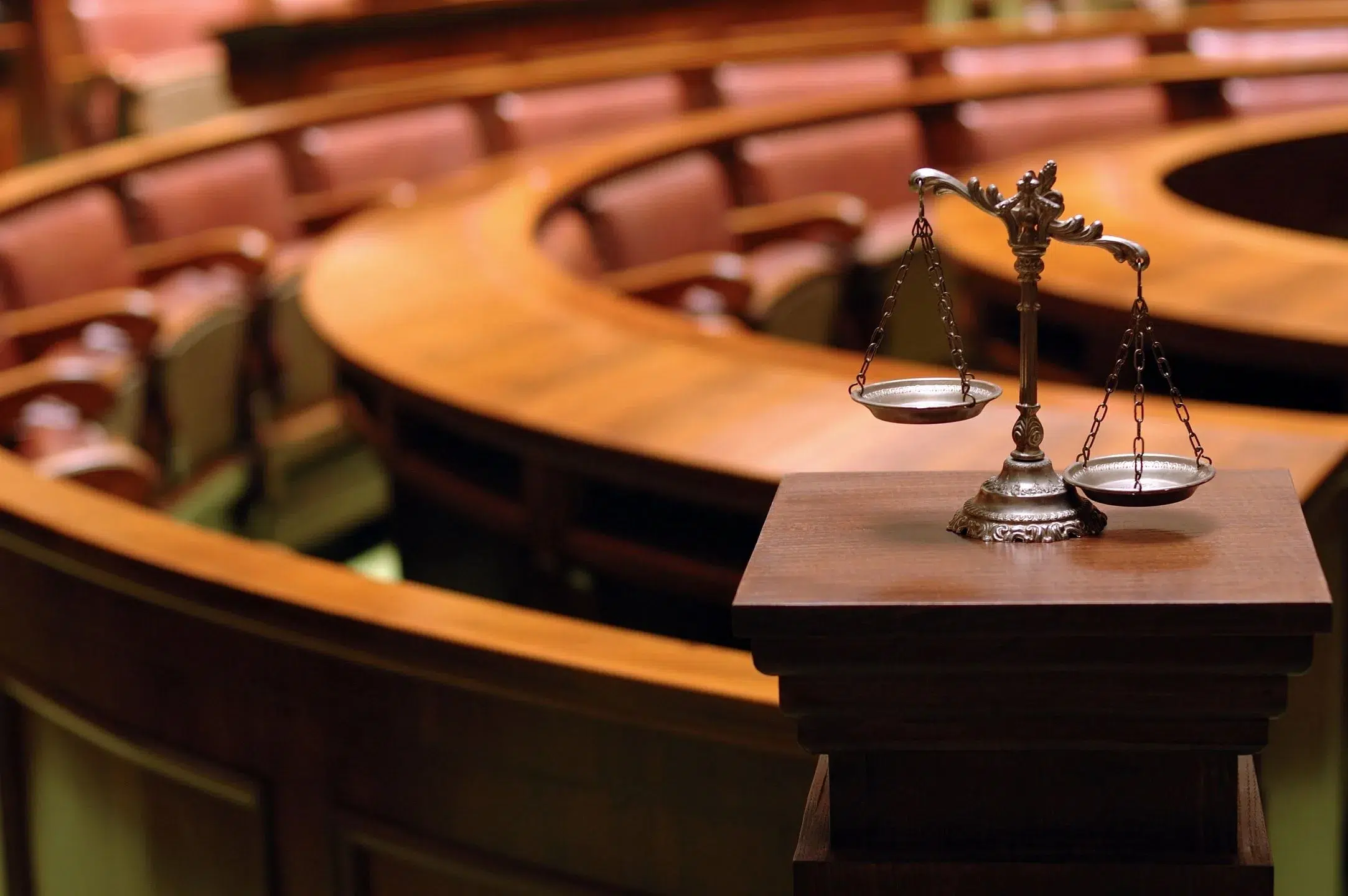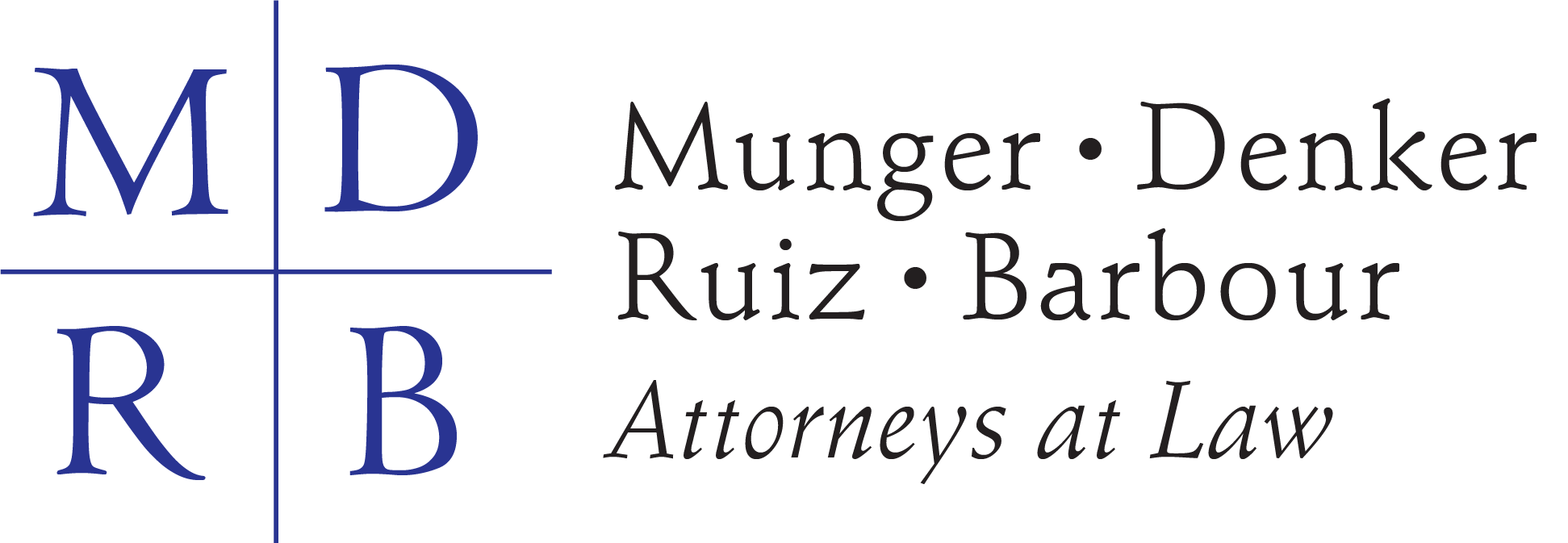
Acheson Hotels v. Laufer: The Supreme Court Examines the Concepts of “Standing” and “Mootness” in the Digital Age
This past October, the United States Supreme Court heard oral argument in an interesting case of a “civil rights tester” (sometimes referred to as a “professional plaintiff”). In this case, the plaintiff is an individual who scours the internet looking for hotels whose websites lack information on accessibility as required by the Americans with Disabilities Act (“ADA”), and then files lawsuits against those hotels in federal court. In this case, the Supreme Court was asked to evaluate how the legal concepts of “standing” and “mootness” apply in such lawsuits brought by professional plaintiffs who never have a business relationship with the defendants, and it provides a fascinating glimpse into the complex world of legal procedure in the digital age. At Munger Denker Ruiz Barbour, our attorneys stay up-to-date on these and all other developments in the law that affect our clients.
The Parties to the Case
Deborah Laufer, a Florida resident with multiple sclerosis and vision impairments, has initiated legal action against more than 600 hotels in the last five years. Such cases brought by “testers” can impose a significant financial burden on the defendant’s businesses. In 2020, Laufer filed a lawsuit against Acheson Hotels, then operating The Coast Village Inn in Wells, Maine. Laufer contended that Acheson had violated the ADA’s “reservation rule” by failing to describe the accessibility of Acheson’s facilities online.
The Progress of the Case through the Courts
Initially, Laufer’s case was dismissed by a federal trial judge on the ground that Laufer lacked “standing.” Standing is a legal rule that requires all parties to a case to have an actual dispute, the resolution of which will affect those parties’ individual rights and interests. The judge in this case agreed with Acheson’s argument that Laufer lacked standing because Laufer never intended to book a room at Acheson’s hotel. The U.S. Court of Appeals for the 1st Circuit, however, reinstated Laufer’s lawsuit, reasoning that Laufer did have standing because she had a right to accessibility information that the hotel’s website did not provide — even if Laufer never intended to use that information.
Acheson then asked the Supreme Court to review the case, and Laufer, in an unusual move, agreed that the high court should take the case and address the standing issue.
In July 2023, however, the case took another turn. Laufer’s attorney, Tristan Gillespie, faced allegations that he had violated the professionalism rules governing the conduct of attorneys, and Laufer voluntarily dismissed her case in the trial court — meaning that the case would not continue irrespective of the Supreme Court’s ruling on the standing issue. Laufer then asked the Supreme Court to dismiss the case as “moot,” meaning that the dispute had been resolved and that there was nothing for the courts to decide.
The Mootness Question
The oral argument focused on whether the case really is moot — that is, whether the case still presents a live controversy after Laufer’s dismissal in the lower court.
Acheson’s Perspective
Acheson’s lawyer, Adam Unikowsky, urged the justices to focus on the original standing question. He argued that Laufer did not suffer an “informational” injury because she did not intend to stay at the hotel or to use the information she sought. Unikowsky cautioned against dismissing the case, as it could set a precedent encouraging the filing of numerous lawsuits.
Laufer’s Perspective
Kelsi Corkran, representing Deborah Laufer, emphasized the case’s mootness, pointing out that neither party had any remaining interest in the outcome. Corkran also addressed the standing question, arguing that Laufer had experienced a “discriminatory denial of information.” She stressed that cases involving the ADA’s “reservations rule” typically involve “testers” like Laufer, as they aim to test compliance before making travel plans.
The Justices’ Reactions
Several justices expressed skepticism about ruling on the standing question when the underlying case had been dismissed by the plaintiff. For example, Justice Clarence Thomas questioned the need to decide the case, given that it seemed “finished,” while Justice Brett Kavanaugh noted that the case could be dismissed on mootness grounds and the standing question could be addressed in a future case.
Justice Ketanji Brown Jackson also highlighted the principle of “Munsingwear vacatur,” which means that the Court of Appeals’ decision (which had gone against Acheson) would be vacated anyway if the case were deemed moot. In other words, under the principle of Munsingwear vacatur, the decision that Acheson was seeking to overturn would be vacated, and Acheson would achieve its goal in the case, even if the Supreme Court agreed with Laufer that the case is now moot.
On the other hand, Chief Justice John Roberts expressed worries that if the court were to dismiss the case as moot, it would encourage future professional plaintiffs to moot cases intentionally — that is, to manipulate the courts by dismissing lawsuits whenever it appears that they are facing unfavorable outcomes on appeal. Similarly, Justice Amy Coney Barrett noted that significant resources already have been invested in this case.
Hints Regarding the Standing Question
Although oral argument focused on the mootness question, there was discussion about the standing issue as well, and it appeared that several of the justices were inclined to find that a plaintiff in Laufer’s position does not, in fact, have standing to sue a defendant with which she does not have an actual commercial relationship. In particular, some justices seemed dubious about the assertion that Laufer was injured by the hotel’s failure to provide accessibility information online when Laufer never did business, and never intended to do business, with the hotel. Chief Justice John Roberts noted the difference between Laufer’s case and a landmark 1982 case, Havens Realty Co. v. Coleman, which involved a plaintiff who actually suffered discrimination personally. Justice Elena Kagan likewise questioned the need for accessibility information when Laufer had no intention of staying at Acheson’s hotel.
Conclusion
The Supreme Court’s decision in Acheson Hotels v. Laufer is expected by summer 2024. And while the outcome remains uncertain, the case very well could be a landmark decision for both plaintiffs and defendants in the area of civil-rights litigation.
The attorneys at Munger • Denker • Ruiz • Barbour stay up-to-date on all aspects of the law affecting our clients in Arizona, across the United States, and around the world. Our attorneys know that your time and money are valuable, and we will work to resolve your matter efficiently and effectively, both in and out of court.
Find more information on law in the digital age with our posts on metadata and Facebook: Data Privacy.
Please click the link below to learn more about how Munger • Denker • Ruiz • Barbour can help you.
Latest Posts
Quiet Title
Normally, it is simple to determine who is the lawful owner of real property: Whoever is listed on the last deed recorded with the county recorder’s...
Quiet Title
Safeguarding Your Interests in Arizona Probate Court
What Is Probate Court? A probate court is one that has authority or jurisdiction over all cases involving wills, trusts, estates, and...



